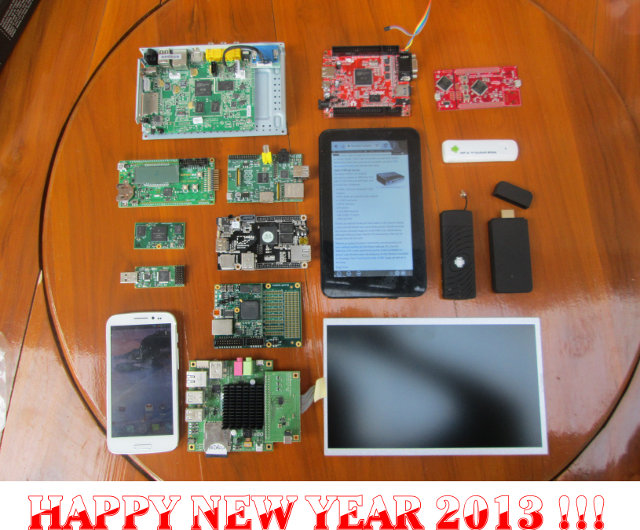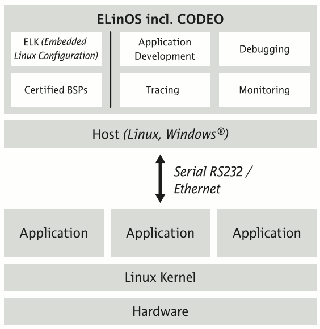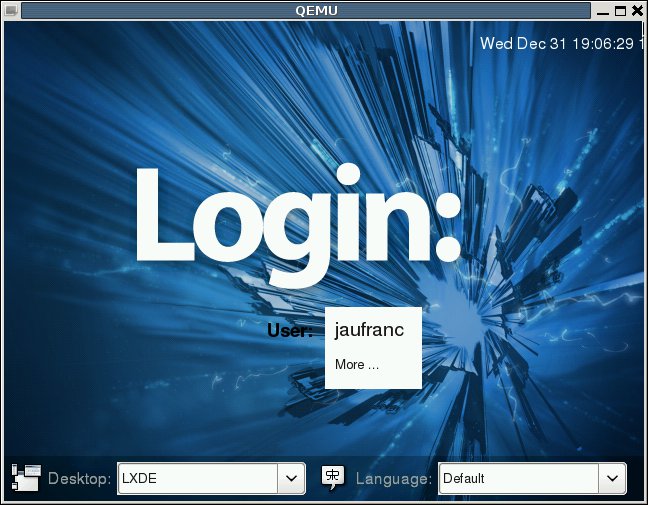Linaro 13.06 has been released with Linux Kernel 3.10-rc6 and Android 4.2.2. Linux Linaro Stable (LSK) preview is based on kernel 3.9.6. There seems to have been a lot of activity for the LAVA and Builds and Integration teams, with LAVA support for new SoC such as Huawei K3V2 and Broadcom Capri from 2 companies which have recently joined Linaro as members, and well as continuous build for Linaro Stable Kernel. On the kernel side, more work has been done for multi-platform support (unified kernel), uprobes, eMMC power mamangement, and more. Here are the highlights of this release: LAVA LAVA Core As part of the effort to improve the developer experience with LAVA, the different client tools were consolidated into a single package, which simplifies the process of updating the tools and makes it easier for the team to provide new features for LAVA users. LAVA now supports KVM devices, […]
Top 10 Posts of 2012 on CNXSoft Blog
This is the last day of the year, so it’s probably a good time to look back and see what interested people on this blog. This has been a banner year for low cost ARM devices and boards starting with the Raspberry Pi, then MK802 and the new mini PCs / HDMI TV dongles / PCs-on-a-stick (whatever you want to call them) that came after, always cheaper and faster. Those low cost devices have in turn made people really interested in ARM Linux, and lots of development on those little devices and boards started. The top 10 posts of 2012, according to page views, reflect just those trends: 74 USD AllWinner A10 Android 4.0 Mini PC (May 2012) – MK802 started the whole “low cost mini PCs” craze, and drove the most traffic to this blog this year. People got excited about the price, form factor, and the possibility to […]
openSUSE 12.2 for ARM is Now Available for Beagleboard, Pandaboard, Efixa MX and More
The first stable release of openSUSE for ARM has just been announced. openSUSE 12.2 for ARM is officially available for the Beagleboard, Beagleboard xM, Pandaboard, Pandaboard ES, Versatile Express (QEMU) and the rootfs can be mounted with chroot, but “best effort’ ports have been made for Calxeda Highbank server, i.MX53 Loco development board, CuBox computer, Origen Board and Efika MX smart top. Work is also apparently being done on a Raspberry Pi port which should be available for the next release. openSUSE developers explains that almost all of openSUSE builds runs on these platforms (about 5000 packages). Visit “OpenSUSE on your ARM board” for download links and instructions for a specific ARM board. More details are available on the wiki page. openSUSE has limited resources for ARM development, so If you’d like to help with development (e.g. fixing builds), visit ARM distribution howto page to find out how to get […]
Linaro 12.09 Release with Kernel 3.6 and Android 4.1.1
Linaro release 12.09 has just been announced, and includes Linux Kernel 3.6-rc6 and Android Jelly Bean. This release provides further improvement to Android Jelly Bean, Android benchmark characterization, an ARMv8 OpenEmbedded image, UEFI bootloader support for Vexpress, origen and pandabords, and some improvement to big.LITTLE and power management. Here are the highlights of the release: Android All Linaro patches are now available on Jelly Bean. Accelerated graphics is now available on Snowball Jelly Bean build. AndEBench, AndEBench Java, Linpack, CaffeineMark, Antutu 2D and 3D, NBench, Quadrant, I/O Benchmark, Vellamo benchmark hotspot characterization available. An Origen tracking build is available and will be released this cycle as a Linaro Evaluation Build (LEB). Audio works on Origen running Jelly Bean (WAV file only). A Monkeyrunner script to run Streamline has been completed. First rev of the NI PXIe-4154 based power measurement system is created. See http://www.youtube.com/watch?v=9bKyuxLl4iw&feature=plcp In-tree AOSP tests have been automated. […]
SYSGO Releases ELinOS 5.2 Industrial Grade Linux
SYSGO, a software company for the real-time and embedded markets, has announced the release of ELinOS 5.2, an Industrial Grade Linux distribution, updated to kernel 3.2 and with new features related to scheduling, memory management, file systems, networking and security. The new 5.2 version brings the following improvements: Integration of new kernel 3.2 to support new features and availability of previous versions of kernels 2.6.33 and 2.6.34, to respond to customers demand. Real-time extension based on Open Source Automation Development Lab (OSADL) implementation (PREEMPT RT) especially designed and tested for industrial needs. Support for latest embedded CPUs including Intel, Freescale QorIQ, ARM Cortex, TI OMAP 4, Freescale i.MX6 and MIPS. SMP (Symmetric multiprocessing) support on all multi-core platforms. QEMU simulator supported for all architectures. New functionality support in areas of graphics (i.e. AMD Llano Fusion APUs), Wi-Fi (i.e. Intel iwlwifi 105 and 135), SATA (i.e. Intel C600 serial-attached-scsi controller), USB […]
Linaro 12.03 Release with Kernel 3.3-rc3
Linaro has just released version 12.03 based on Linux Kernel 3.3-rc3 and Android 4.0.3. Among the key points, hardware video decode in now supported in Origen (Android), Android runs in A15/A7 platforms, libav AAC optimization provides about 2x performance improvement and QEMU supports Samsung Exynos 4240 and Calxeda Highbank (work done upstream). Here are the highlights of the release: Android Linaro Android has support for DS-5 version 5.9. Hardware accelerated Multimedia is now integrated on Origen. EEMBC, denbench and coremark have been ported to Android and are running in LAVA. android.net ConnectivityManager unit tests have been built and integrated in all builds. Hardware decode of H264 and MPEG4, 1080P and 30 FPS is enabled on Origen. Origen now has 1080p HDMI Graphics and Video Support. Android runs on A15, A7 and A15/A7 fast models. ARM’s big.LITTLE has been tested running Android using a set of unit tests. Kernels of prebuilt […]
How to build qemu-system-arm in Linux
Most (all?) Linux distributions have a binary package for qemu-system (including qemu-system-arm) in order to emulate non-x86 targets such as ARM, MIPS, PPC, Alpha and more. However, in some case you may need to very latest version of qemu-system and it may not be able yet for your distribution. Here’s how to do to build qemu-system-arm without building all qemu-system-***: Download the latest stable version of qemu (qemu 1.0.1 at the time this post was written):
|
1 |
wget http://wiki.qemu.org/download/qemu-1.0.1.tar.gz |
or get the latest source code (development tree) which has the very latest features and bug fixes, but may not work or compile:
|
1 |
git clone git://git.qemu.org/qemu.git |
or get the latest source code from linaro (which may be more up-to-date for ARM targets):
|
1 |
git clone git://git.linaro.org/qemu/qemu-linaro.git |
Configure qemu to build ARM targets:
|
1 2 |
cd qemu ./configure --target-list=arm-softmmu,arm-linux-user |
Build and install qemu-system-arm:
|
1 2 |
make -j 2 sudo make install |
Verify the latest version of qemu-ssytem-arm is installed:
|
1 2 |
# qemu-system-arm --version QEMU emulator version 1.0,1, Copyright (c) 2003-2008 Fabrice Bellard |
Jean-Luc Aufranc (CNXSoft)Jean-Luc started CNX Software in 2010 as a part-time […]
Instructions to Run Raspberry Pi Fedora 14 Remix in QEMU
As mentioned in my previous post, the Raspberry Pi Foundation has just released the Fedora 14 Remix SD card image that can be installed either via installer (easiest method) or using dd / windd as with the previous image. In this blog post, I’ll give the instructions how to run Raspberry Pi Fedora 14 Remix in QEMU using a similar method than the one I used for Debian Squeeze. I tested since in machines with Ubuntu 10.04 LTS and Debian 6.0.4. Download the image using BitTorrent raspberrypi-fedora-remix-14-r1.img.gz.torrent or via the HTTP link available on Raspberry Pi Download page. Decompress the image:
|
1 |
gzip -d raspberrypi-fedora-remix-14-r1.img.gz |
Download kernel 3.0.4 image for qemu, if you don’t have it yet.
|
1 |
wget http://dl.dropbox.com/u/45842273/zImage |
Since the rootfs is full (in the real board it will be resized to the size of the SD Card), we need to increase the size of the rootfs partition. First create and empty 3G […]






